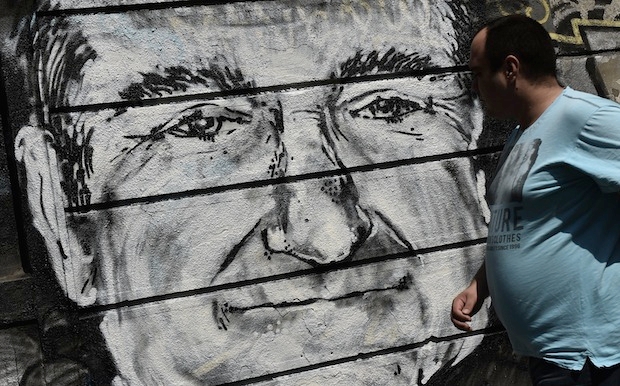When Robin Williams killed himself, his spokesman revealed that he’d been suffering from depression. Cue well-meaning advice about this mysterious and deadly condition – the need to seek help, etc. Then the media caught up with his addiction: he was a recovering alcoholic and cocaine addict who’d been with John Belushi on the night Belushi died (‘comedian Robin Williams popped in and snorted a few lines of coke,’ says one account). Now we learn that Williams was on the verge of bankruptcy.
Depression, addiction, money worries: that’s a cocktail familiar to anyone in Hollywood or the music industry. And once the ingredients are shaken they can’t be separated out. For vast numbers of performers – many more than we’ll ever know about – it’s the price of celebrity.
Not fame, note, but celebrity. Senior politicians are famous, and shoulder far more complex responsibilities than actors, comedians and singers, but few of them check in and out of rehab. Their struggles with booze (usually) and depression tend to stay below the radar.
‘Celebrity’, in contrast, is monstrously dangerous. Even low-grade celebs are constantly on show for as long as they have a career. To the stress of performance are added promotional appearances and ‘events’ where they must embrace the party spirit without disgracing themselves. The temptations of drugs, alcohol and sex never go away, no matter how loudly they insist that they’ve cleaned up and will just have a Diet Coke, thanks.
A working life that hypes you up until the early hours of the morning is not a safe environment for people whose natural inclination is to show off. It’s exhausting but also offers instant fixes for exhaustion. Cocaine, for example is a devious manipulator of mood in an industry where moods cry out to be adjusted.
The human body isn’t built to deal with the over-supply of pleasure-generating substances. Hence our obesity crisis. Ordinary people gorge on mood-lifting sugar – often without realising they’re doing so. In developing countries, where sweet treats are suddenly everywhere, diabetes is out of control.
In my book The Fix, I argue that addiction isn’t a disease but a supply-driven ‘impulse control disorder’. (I wrote about this in The Spectator here.) Not everyone is vulnerable, but there’s lots of evidence that those of us with impulsive personalities are massively at risk from alcohol, illegal drugs and, increasingly, prescription drugs.
In the entertainment industry, impulsive people are pushed to take insane gambles with their health in order to succeed. Cocaine doesn’t just promise a high that will carry them through nerve-racking social events: it can also give an edge to their performances. In the first flush of his success, Robin Williams’s jabbering improvisations were fuelled by ‘Bolivian marching powder’: they may have been touched by genius but they also had the wearing quality of cokehead soliloquies.
Coming down from these highs can be scary. For some celebrities – Philip Seymour Hoffman and Peaches Geldof, who God knows didn’t have much else in common – only the opiate bath of heroin is soothing enough. For others, highly addictive tranquillisers do the job.
These tragedies will become more frequent as the culture of celebrity trickles down. Impulsive consumers have moved beyond maxing out their credit cards buying luxury goods associated with film stars; now they reach for chemical mood enhancers at parties modelled on the celeb lifestyle. What is the solution? There probably isn’t one, but as a former alcoholic and drug addict I’m the wrong person to ask.







Comments